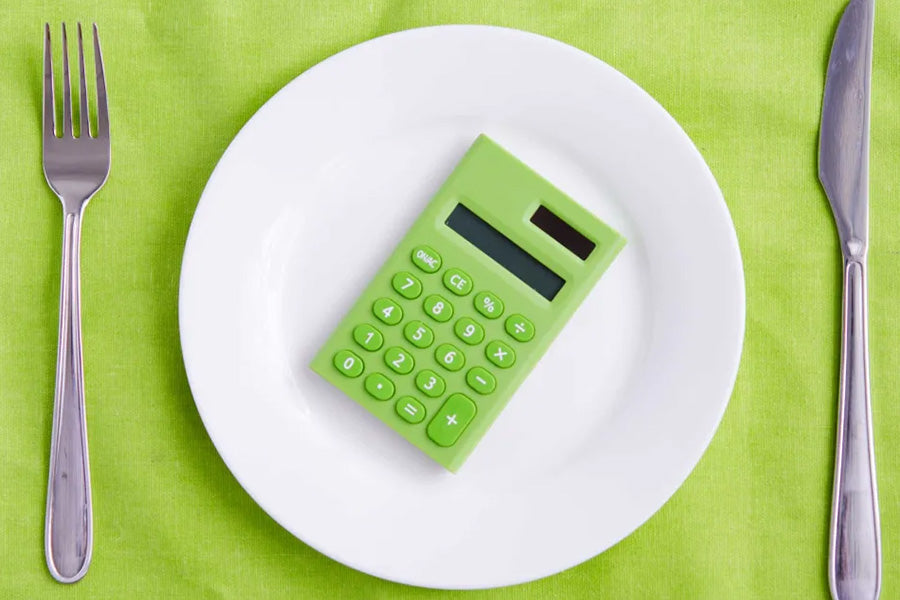Basal metabolic rate plays a great role in performing major body functions. These basal functions include breathing, blood circulation, iron transport, and cell production. Basal metabolic rate calculation determines how many calories you need to take to ensure the smooth functioning of your body.
Calculating your BMR also gives you an idea about the calories your body is using. In this way, you can set the calories according to your needs. If you aim to lose weight, you can consume fewer calories than you burn. For instance, if your total calories for a day are 2000, you can minus some from these to lose weight.
Likewise, if you want to maintain weight, consume the same calories. An important thing to know here is to not confuse BMR with RMR, which is resting metabolic rate. RMR is the number of calories that your body is burning at rest.
Your resting metabolic rate is the amount of energy your body consumes when not active. RMR incorporates more low-effort daily activities in addition to essential body functions. Eating, walking for short periods, going to the toilet, consuming caffeine, sweating, or shivering are examples of these actions.
Related Article: How to Measure Body Fat Using Calipers
Harris-Benedict Equation
Harris-Benedict equation is a standard tool to calculate the basal metabolic rate. It is different for males and females. It depends on many factors such as:
Following are the formulas that you can use to calculate BMR:
BMR for men = 66 + (13.7 x weight in kg) + (5 x height in cm) – (6.7 x age in years)
BMR for women = 655 + (9.6 x weight in kg) + (1.8 x height in cm) – (4.7 x age in years)
Calculating basal metabolic rate further gives you an estimate of Total Energy Expenditure. After calculating the calories with the Harris-Benedict equation, the next step is to include the calories you burn based on your physical activity level.
Sedentary: If you do not exercise, then multiply your BMR by 1.2
Lightly active: Multiply your BMR by 1.3 if you exercise two to three days a week.
Moderately active: For people who exercise for more than three days, BMR would be multiplied by 1.5
Vigorously active: If you exercise all days of the week with additional physical activity, multiply your BMR by 1.9
The final number you will get will be the number of calories you need to consume.
Another thing that determines your total number of calories is the stress factor.
People who are healthy and do not have any disease have stress factor, 1. But those suffering from diseases such as chronic kidney disease, cancer, or liver problems, will multiply their final value with relevant stress factors.
Importance of BMR
After you are done calculating your BMR, you can get a clear idea about the number of calories you need to consume. You can then divide your meals depending on these calories. You can add 200 – 350 calories to your final value if you are underweight. The following table will help you to understand this concept clearly:
|
BMR |
Changes |
|
2000 |
Weight loss: 2000-300 = 1700 kcaL |
|
2000 |
Weight gain: 2000+ 200 = 2200 kcaL |
|
2000 |
Maintenance: 2000 kcaL |
If you want to change your BMR, you can work on your weight and activity level. Improving these values will change your final BMR.
The accurate value of BMR gives you a direction to lose weight or build muscle. A person exercising for more than 1 hour a day will have more calories than a person exercising for less than half an hour. Hence, BMR is an important component to assess your nutritional needs.
Related Article: How to Lose Weight the Right Way?
Sample
A female lightly active, aged 25, height 5'-4", and weight 65 kg will calculate BMR in this way:
BMR for women = 655 + (9.6 x weight in kg) + (1.8 x height in cm) – (4.7 x age in years)
= 655 + (9.6 x 65) + (1.8 x 162.5) – (4.7 x 25)
= 655 + 624 + 292.5 – 117.5
= 1454 kcal
Total Energy Expenditure = 1454 x 1.3 x 1
= 1890 kcal
To convert your weight from pounds to kg, divide your weight in pounds by 2.2 and you will get weight in kg.
To convert height in inches to cm, multiply your height in inches by 2.54 and you will get height in cm.
The total number of calories that the female should be consuming is 1890 kcal. She can make changes to these calories depending on her goal.
Final Words
Whether you need to lose weight or maintain it, calculating your BMR is must. It is important to use the formula correctly and add your weight and height to get a perfect final number. You can plan and divide your meals easily with the help of your basal metabolic rate.
Reading List
5 Most Important Tips to Start Your Fitness Journey
Quick Weight Loss Tips You Should Try
How to Live a Healthy Lifestyle?
Article Sources
- Douglas, Crystal C., et al. “Ability of the Harris Benedict Formula to Predict Energy Requirements Differs with Weight History and Ethnicity.” Nutrition Research (New York, N.Y.), vol. 27, no. 4, Apr. 2007, pp. 194–99. PubMed Central, https://doi.org/10.1016/j.nutres.2007.01.016.
- A M Roza, H M Shizgal, The Harris Benedict equation reevaluated: resting energy requirements and the body cell mass, The American Journal of Clinical Nutrition, Volume 40, Issue 1, July 1984, Pages 168–182, https://doi.org/10.1093/ajcn/40.1.168
- Shimokata, H., and F. Kuzuya. “[Aging, basal metabolic rate, and nutrition].” Nihon Ronen Igakkai Zasshi. Japanese Journal of Geriatrics, vol. 30, no. 7, July 1993, pp. 572–76. PubMed, https://doi.org/10.3143/geriatrics.30.572.
- Anthanont, Pimjai, and Michael D. Jensen. “Does Basal Metabolic Rate Predict Weight Gain?12.” The American Journal of Clinical Nutrition, vol. 104, no. 4, Oct. 2016, pp. 959–63. PubMed Central, https://doi.org/10.3945/ajcn.116.134965.
- Sjödin, A. M., et al. “The Influence of Physical Activity on BMR.” Medicine and Science in Sports and Exercise, vol. 28, no. 1, Jan. 1996, pp. 85–91. PubMed, https://doi.org/10.1097/00005768-199601000-00018.
- Barak, Nir, et al. “Evaluation of Stress Factors and Body Weight Adjustments Currently Used to Estimate Energy Expenditure in Hospitalized Patients.” JPEN. Journal of Parenteral and Enteral Nutrition, vol. 26, no. 4, Aug. 2002, pp. 231–38. PubMed, https://doi.org/10.1177/0148607102026004231.
- Gastroenterology Education and CPD for Trainees and Specialists » Estimating Calorie Requirements. https://www.gastrotraining.com/nutrition/basics/calorie-requirements/calorie-requirements.
- Marcus, Jacqueline B. “Chapter 10 - Weight Management: Finding the Healthy Balance: Practical Applications for Nutrition, Food Science and Culinary Professionals.” Culinary Nutrition, edited by Jacqueline B. Marcus, Academic Press, 2013, pp. 431–73. ScienceDirect, https://doi.org/10.1016/B978-0-12-391882-6.00010-8.
- Feher, Joseph. “8.6 - Energy Balance and Regulation of Food Intake.” Quantitative Human Physiology (Second Edition), edited by Joseph Feher, Academic Press, 2017, pp. 834–46. ScienceDirect, https://doi.org/10.1016/B978-0-12-800883-6.00082-3.











